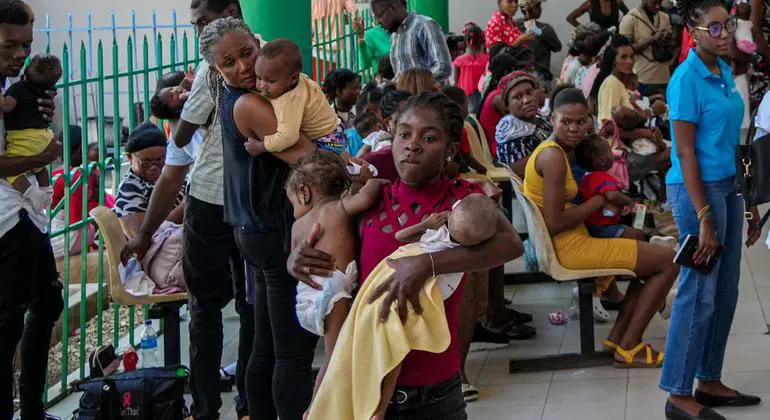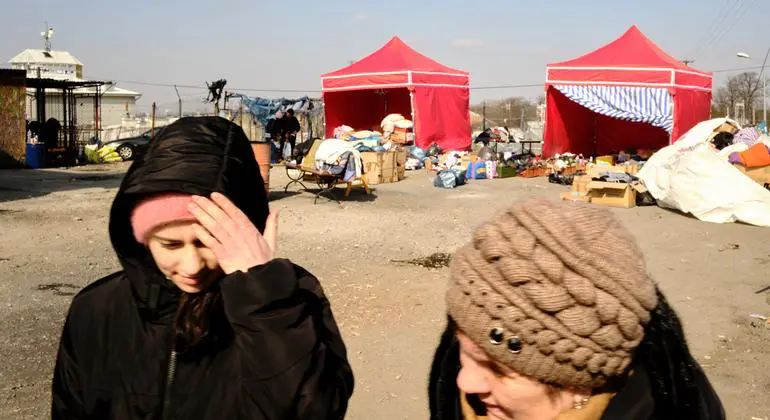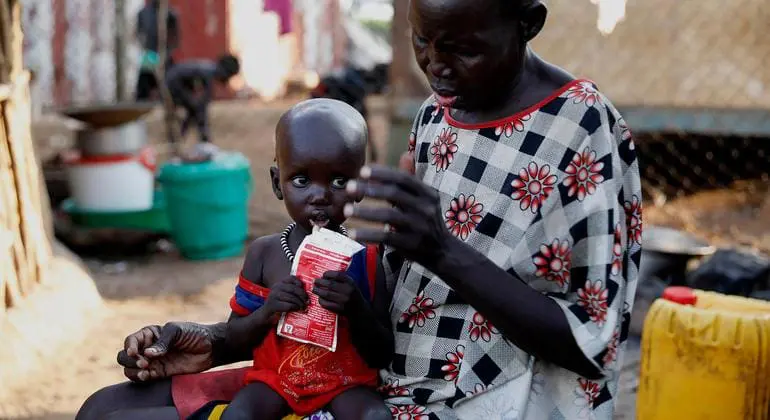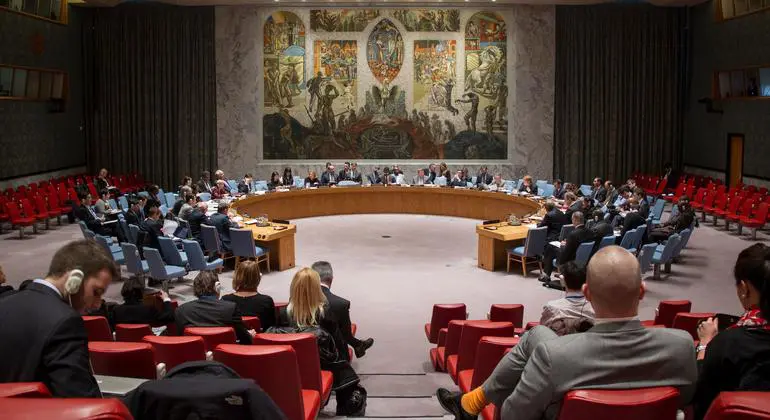The World Food Programme (WFP) distributed more than 74,000 hot meals to over 15,000 displaced people in the besieged capital, Port-au-Prince, Stéphane Dujarric, Spokesperson for the UN Secretary-General, told journalists at UN Headquarters on Thursday, providing an update on the gang-ravaged Caribbean nation.
In addition, about 2,400 children received mental health and psychosocial support from child protection experts, he said.
At the same time, humanitarian agencies provided information sessions to more than 4,000 people sheltering in displacement sites on such critical issues as gender-based violence, protection and sexual abuse.
Nearly 1.6 million people are facing acute food insecurity levels in Haiti, according to UN agencies.
The UN Spokesperson also reported that civilians in displacement sites in Port-au-Prince had received about 13 million litres of water from UN agencies, partners and Haiti’s civil protection department since the beginning of March.
In the Artibonite region, Mr. Dujarric said WFP has provided cash assistance to over 13,000 people as part of its emergency activities and another 6,000 people in this region received food.
Following the recent tornado in the Bassin Bleu commune, which damaged more than 300 houses, WFP will also provide food for nearly 3,800 residents, he said.
Violence and blocked borders impede aid access in Gaza
In Gaza, the Office for the Coordination of Humanitarian Affairs (OCHA) said on Thursday that increased violence and blocked borders continued to restrict aid access in the enclave where hundreds of thousands of people are in need.
Humanitarians are experiencing “movement restrictions” to border areas which are causing delays in planned missions to collect resources from the Kerem Shalom crossing, the UN Spokesperson said.
“We need Israeli authorities to swiftly facilitate access to the crossing so that aid workers can safely reach the crossing to pick up supplies,” he said. “We also need safe and unimpeded passage to distribute that assistance to scale to people in need, wherever they may need it in Gaza.”
‘Catastrophic levels of hunger’
The UN and its humanitarian partners are doing all they can to aid civilians in Gaza, he said, adding that WFP is calling for blocked borders in Gaza to be opened since this impacts their ability to reach people in need.
“Constrained access to southern parts of Gaza risks causing the same catastrophic levels of hunger that has been seen in the north, and in central and southern Gaza, hunger levels are deteriorating fast,” Mr. Dujarric said.
He said WFP reported that some commercial supplies have reached the enclave, but the high cost means many civilians cannot afford the goods.
‘Israel must stop its campaign against UNRWA’
The UN relief agency for Palestine refugees, UNRWA, which serves more than 5.9 million Palestinians in the region, said conditions are dire, and in the last two days alone, more than 32,000 people have fled the escalating fighting in Rafah.
In a guest essay published on Thursday in The New York Times, UNRWA chief Philippe Lazzarini referred to unproven allegations Israel had made earlier this year against the UN agency and efforts to restrict its work in war-torn Gaza.
“As I write this, our agency has verified that at least 192 UNRWA employees have been killed in Gaza,” he said in the essay. “More than 170 UNRWA premises have been damaged or destroyed. UNRWA-run schools have been demolished; some 450 displaced people have been killed while sheltered inside UNRWA schools and other structures.”
He also said that since the Hamas-led attacks on Israel on 7 October, Israeli security forces have “rounded up UNRWA personnel in Gaza, who have alleged torture and mistreatment while in detention” in the Strip and in Israel.
“Israeli officials are not only threatening the work of our staff and mission, they are also delegitimising UNRWA,” he wrote. “Israel must stop its campaign against UNRWA.”
First ever International Day of Potato
It’s the world’s first ever International Day of Potato, and the theme is Harvesting diversity, feeding hope, with a focus on the ancient vegetable’s contribution to the lives of producers and consumers as well as the 17 Sustainable Development Goals (SDGs).
The General Assembly designated 30 May to pay tribute to the potato, an 8,000-year-old crop originating in the Andes mountains in South America that is now a staple food consumed by about two thirds of the world’s population.
Climate-friendly and resistant to drought, cold and barren land with wide adaptability, the potato contributes to the food security, nutrition, livelihoods and employment of people in rural and urban areas the world over.
Key crop around the world
Indeed, 159 countries cultivate potatoes, and there are 5,000 varieties worldwide. Nearly 50 per cent of current crops produced are used as the household staple food or vegetable.
Potatoes are a key crop across diverse farming systems globally, ranging from smallholders producing diverse heirloom varieties by hand in the Andes to vast commercial, mechanised farms in different continents.
Building on the International Year of the Potato, marked in 2008, today’s observance also recognises the roles of small-scale family farmers, a significant proportion of whom are women, in safeguarding the wide spectrum of the crop’s diversity, according to the Food and Agriculture Organization (FAO).
By 2030, the total production of potatoes is expected to rise by 112 per cent of current harvests, reaching 750 million tonnes, of which more than half is predicted to be produced in Asia, Africa and Latin America.
As communities around the world mark the day, both the cultural and culinary dimensions of the crop’s cultivation and consumption are also being celebrated, from pierogis to dum aloo.







